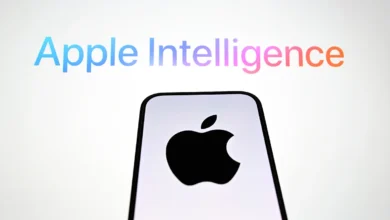Is the Internet Dying? Humans vs. Bots: A Fight for Web Dominance – The Dead internet Theory
The internet, once a vast frontier of human connection and exploration, now finds itself at a crossroads. A recent report by cybersecurity firm Imperva has sent shivers down the spines of web veterans: nearly half (49.6%) of all internet traffic now originates from bots. This statistic fuels the fire of the “dead internet theory,” a growing concern that human interaction and organic content are being drowned out by a sea of automated activity.
What are Bots and Why Do They Matter?
Bots, short for robots, are automated software programs that perform tasks on the internet. Not all bots are created equal. Here’s a breakdown of the two main categories:
- Good Bots: These bots perform helpful functions, like search engine crawlers that index websites, chatbots that provide customer service, and trading bots that automate financial transactions. Good bots keep the internet humming efficiently.
- Bad Bots: These malicious actors can wreak havoc, from stealing data and spreading misinformation to launching denial-of-service attacks and manipulating online polls. They’re the ones responsible for the spammy comments and fake accounts plaguing many platforms.
The Rise of the Machines: How Bots are Taking Over
The Imperva report highlights a significant rise in bot traffic over the past year (up 2% from 20XX). This surge can be attributed to several factors:
- The Sophistication of AI: Advancements in artificial intelligence have led to the creation of more convincing bots. These can mimic human behavior, making it difficult to distinguish them from real users.
- The Growth of Generative AI: Techniques like natural language processing allow bots to generate realistic-looking content, further blurring the lines between human and machine.
- The Data-Driven Economy: Companies are increasingly reliant on bots to scrape data and train AI models. This creates a feedback loop where more data fuels the creation of even more sophisticated bots.
The Dead Internet Theory: A Looming Nightmare?
The dead internet theory posits that the web is becoming a graveyard of genuine human interaction. Here’s how a bot-infested internet could play out:
- Echo Chambers and Filter Bubbles: Bots can manipulate social media algorithms, feeding users a constant stream of content that reinforces their existing beliefs. This creates echo chambers where diverse perspectives are drowned out.
- The Erosion of Trust: The prevalence of fake news and spam bots can erode user trust in online information. This makes it difficult to discern legitimate sources and have meaningful conversations.
- A Gaming of the System: Malicious bots can manipulate online systems for personal gain. This could have serious consequences for e-commerce, online voting, and even democratic processes.
The Future of the Web: Humans and Bots Can Coexist
While the rise of bots presents challenges, it’s not all doom and gloom. Here’s how we can navigate this new landscape:
- Develop Advanced Bot Detection Techniques: Security firms need to develop better tools to identify and filter out malicious bot traffic. AI can play a role in this – by using machine learning to recognize patterns of bot behavior.
- Prioritize Transparency and User Control: Platforms need to be transparent about their use of bots and give users more control over how their data is used.
- Focus on Human-Centered Design: Website and app design should prioritize genuine human interaction. This means encouraging meaningful conversations, fostering a sense of community, and rewarding authentic user engagement.
The internet is not dead yet, but it’s definitely evolving. By acknowledging the challenges posed by bots and taking proactive measures, we can ensure that the web remains a vibrant space for human connection and innovation.




